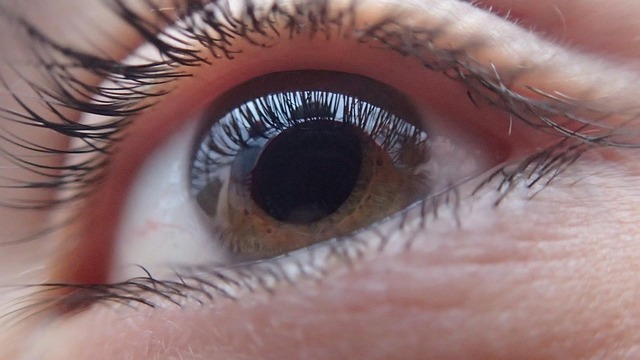
Summary
This article discusses a potential breakthrough in glaucoma treatment: a vitamin supplement showing promise in slowing optic nerve damage. We explore the intersection of this discovery with the rise of AI in medicine, examining how AI could personalize and optimize vitamin therapy. Finally, we delve into the future of glaucoma management, where AI and targeted nutrition may play crucial roles.
See how TrueNAS offers real-time support for healthcare data managers.
** Main Story**
Okay, so, glaucoma treatment. It’s a tough one, right? It’s a leading cause of irreversible blindness, relentlessly chipping away at the optic nerve. And you know, it often doesn’t even announce itself until significant vision loss has already occurred. For the longest time, it’s all been about lowering intraocular pressure (IOP), which, while important, doesn’t really get to the root of the neurodegeneration issue. But, finally, there’s some good news! A recent study suggests a specific vitamin supplement might actually slow down optic nerve damage in glaucoma patients. Early days, sure. But it does offer a glimmer of hope, doesn’t it? It feels like a new path, something that could maybe even be better than just focusing on IOP.
AI: A Personalized Approach
And get this: this development is perfectly timed with the whole AI explosion in medicine. I mean, AI can process so much data, spot the tiniest patterns – it’s practically made for something like glaucoma management. Can you imagine an AI system that looks at a patient’s genes, their lifestyle, how far the disease has progressed, everything? Then, it figures out the perfect vitamin dose and type just for them. It’s personalization taken to the next level! You get the best possible results and avoid those nasty side effects. Plus, AI can predict how glaucoma will likely progress based on an individuals unique situation. That way, doctors can really fine-tune treatments and track how well they’re working.
A Holistic Approach is the Future
Now, imagine AI-powered diagnostic tools. They’re already analyzing retinal images and visual fields, spotting glaucoma sooner and with greater accuracy. Following that, AI generates custom plans of attack. A bit of vitamin supplementation, a smidge of IOP-lowering meds, and lifestyle recommendations. Throw in regular check-ups via an AI platform that tweaks the therapy to how the patient is reacting and how far the illness has progressed. It’s about preventing damage and improving overall eye health.
I remember hearing about a similar approach being used for diabetes management, and the results were incredible. Patients felt more empowered and engaged in their own care, and outcomes improved significantly. I think we’re on the cusp of something similar with glaucoma.
More Than Just Vitamins: AI in Eye Care
But, the use of AI goes further than just vitamin therapy, you know. AI is surprisingly talented in diagnosing and treating other eye diseases too, like diabetic retinopathy and macular edema. They’re also capable of helping surgeons in complicated surgeries. AI can also boost the discovery of new drugs and make clinical trials a lot more efficient. AI allows for the remote monitoring of patients by using teleophthalmology, and gives specialist care to those in far away, rural areas. It’s not all smooth sailing though, we need to secure data privacy and algorithm bias, but the possibilities for AI to change eye care are there.
Challenges and Opportunities: A Delicate Balance
Of course, it’s not all sunshine and rainbows. This vitamin supplement and merging AI into medicine comes with its challenges. We absolutely need those large-scale clinical trials to prove that the vitamin supplementation works and is safe long-term. And, getting AI into clinics? That requires a solid data infrastructure, standardized processes, and training for doctors. But honestly, the potential is HUGE. You can’t deny that.
Conclusion: A Brighter Future for Glaucoma Patients
So, the vitamin supplement and its potential to slow down optic nerve damage is a big win for glaucoma treatment. When you mix that with AI, we’re looking at a future where glaucoma management is more tailored, more accurate, and way more effective. As we keep researching and AI gets better, things are definitely looking up for keeping vision sharp in glaucoma patients. I really do think so.


Given the potential for AI to personalize glaucoma treatment, what ethical guidelines should be established to ensure equitable access to these advanced therapies, especially considering disparities in healthcare resources and infrastructure?
That’s a crucial point! Equitable access is paramount. We need to think about how AI-driven solutions can be deployed in resource-limited settings. Could open-source AI models or telemedicine initiatives help bridge the gap and ensure everyone benefits from these advancements?
Editor: MedTechNews.Uk
Thank you to our Sponsor Esdebe
Beyond personalized vitamin dosages, how might AI assist in early detection of glaucoma risk factors, potentially preventing or delaying disease onset?
That’s a great question! AI’s ability to analyze large datasets could identify subtle risk factors that might be missed in routine exams. Perhaps AI could analyze family history, genetic predispositions, and even lifestyle patterns to create personalized risk assessments, leading to earlier intervention. It’s exciting to consider the possibilities!
Editor: MedTechNews.Uk
Thank you to our Sponsor Esdebe
The discussion around AI-driven diagnostics is exciting. How do you see AI evolving to not only detect glaucoma earlier but also to predict the rate of disease progression for individual patients, allowing for more proactive intervention strategies?